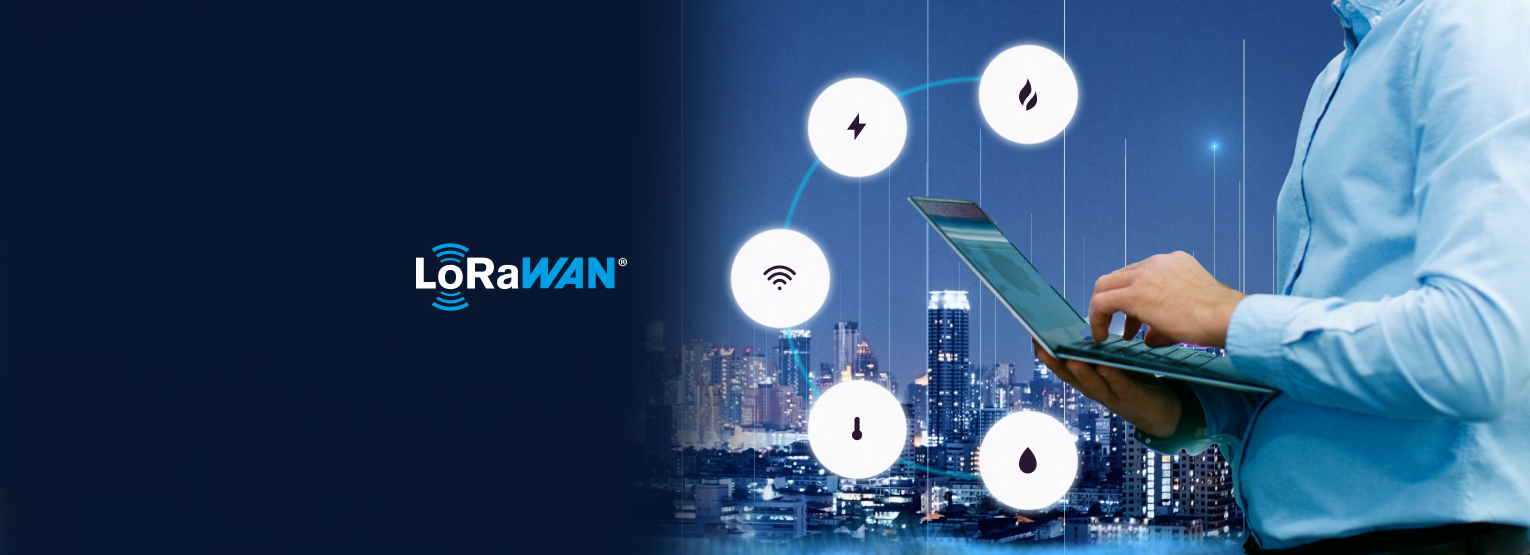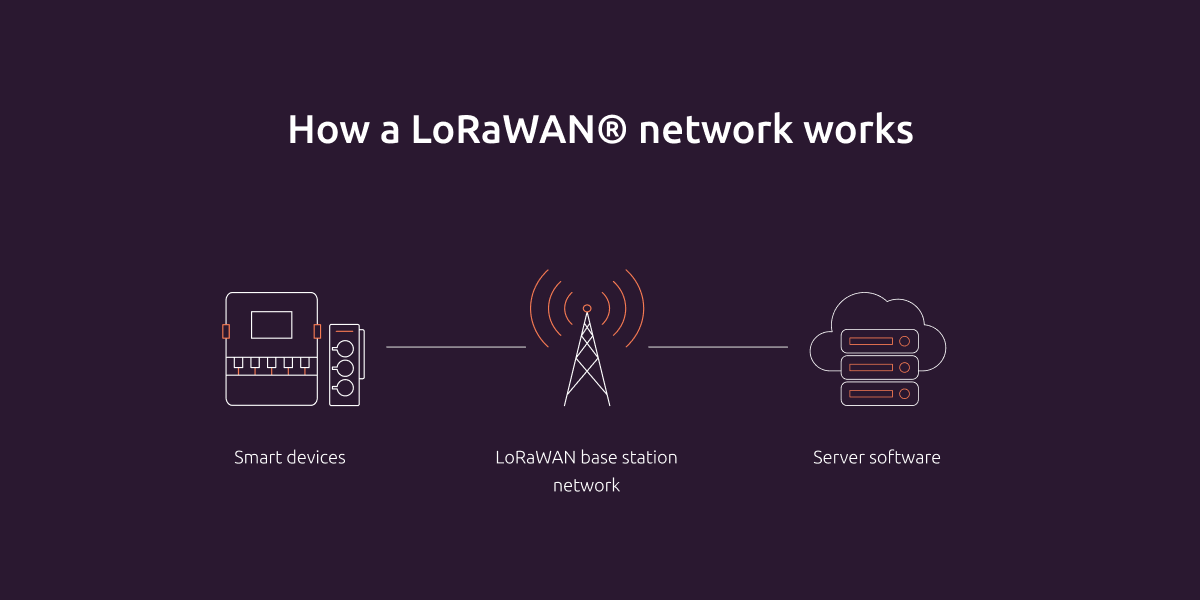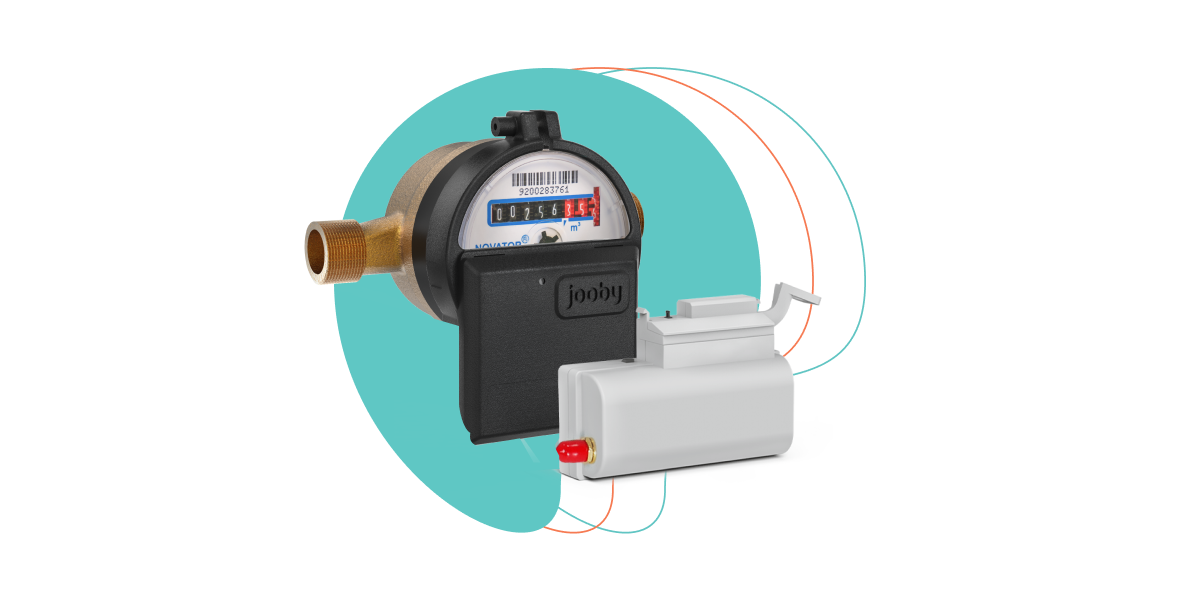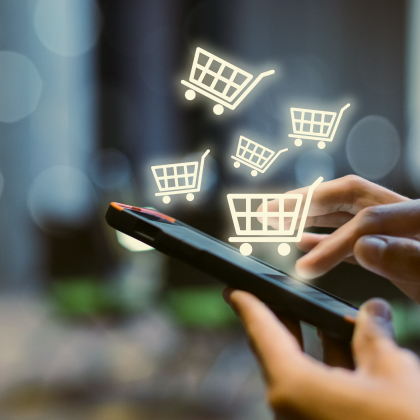Smart City - Blog - LoRaWan for remote data collection and billing in gas and water utilities
01.03.2024
 2949
2949

LoRaWan for remote data collection and billing in gas and water utilities

LPWAN solutions are increasingly being used in smart city infrastructure, allowing utility companies to significantly simplify and speed up data collection. In this article, we look at the opportunities IoT solutions for gas and water utilities based on the LoRaWAN® data transfer protocol can provide.
Wireless communication technologies have opened up the possibility of controlling devices remotely. By equipping electronic devices with sensors and chips and then connecting them to such networks, it’s possible to launch a system that will operate without human intervention. These devices are referred to as ‘smart’ and when united into a single network, they form the Internet of Things (IoT).
Wi-Fi networks are successfully used to transmit large data packets over short distances, for example, inside an office or apartment. However, this technology is unsuitable for transmitting small data packets of smart devices over long distances. Wi-Fi also requires high energy consumption and investment in network deployment.
LPWAN (Low-power Wide-area Network) technologies for meter reading—energy-efficient long-range networks—were created specifically for such tasks. For example, the LoRaWAN® network. This technology allows you to cover a large area (up to 15 km) and use a minimum amount of energy when transmitting data.
LoRaWAN® is successfully used in the Internet of Things, as the data in these networks is transmitted using a protocol specially developed for them. This protocol allows the transfer of data from smart devices powered by batteries. Devices, such as sensors and radio modules designed to read meter readings, can be combined into a single LoRaWAN® network, setting up the automatic transmission of meter readings in an individual house or an entire city.
Data transmission in low-power networks occurs as follows.

Smart devices. These can be smart water/gas meterings, as well as radio modules – devices installed on analog meters which adapts them into smart ones, for example, Jooby radio modules. Depending on the type of radio module, these devices use various types of IoT sensors for gas and water utilities and technologies for reading meter readings.
Jooby radio modules for gas meters are equipped with a built-in magnetic field sensor, which records the number of revolutions of the meter dial, and to collect readings from water meters, optical sensors are used that record the number of revolutions of the meter dial needle (after each full revolution, the sensor generates a pulse).
Smart devices are configured using an application and set a data transmission frequency convenient for the provider, such as once a day. So,at a daily specified time, a radio module would send recorded data to a base station.
Base station, or gateway. A base station is a device that collects data from a large number of radio modules and transmits it to the server. Depending on the frequency of data transmission, up to several hundred radio modules can be connected to one gateway.
Server. Once on the server, the data is processed by the software and becomes available to resource providers and management companies in the form of convenient reports.
As mentioned earlier, LoRaWAN® networks are designed specifically for interval transmission of small data packets. The low data transfer rate and features of the technology make it possible to provide the following advantages:

Remote resource metering based on LoRaWAN® technology allows gas and water supply companies to:
By installing smart devices for resource metering for users, suppliers can get exact data any time they wish. To do so, they don’t need to send a controller, contact a consumer by phone, or wait until the user is at home to give a company employee access to the meter. Instead, readings are read automatically, eliminating the possibility of human error. As a result, the supplier can be sure that they will receive all the necessary and correct data, exactly when they need it.
Thanks to smart devices, water suppliers can quickly learn about leaks in the system and be able to deal with them promptly: smart IoT sensors signal a decrease in pressure or water level.
In addition, the functionality of the radio modules means that you can track attempts by consumers to reduce actual meter readings. For example, if a magnet is installed on the meter to slow down or stop the rotation of the water meter impeller, a supplier immediately receives a notification in the software and can take action to prevent the theft of resources.
Since 2016, Jooby has been providing developers, utilities, and integrators with comprehensive solutions for smart gas and water metering based on LoRaWAN® technology. Over the last eight years, the team has implemented many successful cases. These include setting up a wireless communication system for customers, providing them with smart devices for resource accounting, and a convenient modern system of IoT data analytics. You can learn about these examples in detail and find out how customers optimized data accounting using LoRaWAN® technology on the Jooby website.
Remote accounting of resources based on LoRaWAN® technology provides resource providers with the opportunity to optimize data collection, minimize errors in billing, and have constant access to up-to-date consumer spending data.
IoT applications for meter reading and billing make data processing easy and convenient. The capabilities of such software, in particular the Jooby Dashboard, increase the speed of compiling reports and preparing documentation. By implementing cloud connectivity for gas and water utilities, and through the use of smart devices, businesses are saving money by reducing operational costs for resource accounting and quickly identifying leaks and thefts.
Stay on top of the latest industry news
Thank you, we have received your message. Our manager will contact you shortly.

Our experts are always happy to help and promptly answer your questions. Please fill out the form to discuss your project and develop a tailored action plan.
Thank you, we have received your message. Our manager will contact you shortly.
Thank you, we have accepted your request. In the near future the responsible manager will contact you and clarify the details of the order.
Our experts are always happy to help and promptly answer your questions. Please fill out the form to discuss your project and develop a tailored action plan.
Thank you, we have received your message. Our manager will contact you shortly.